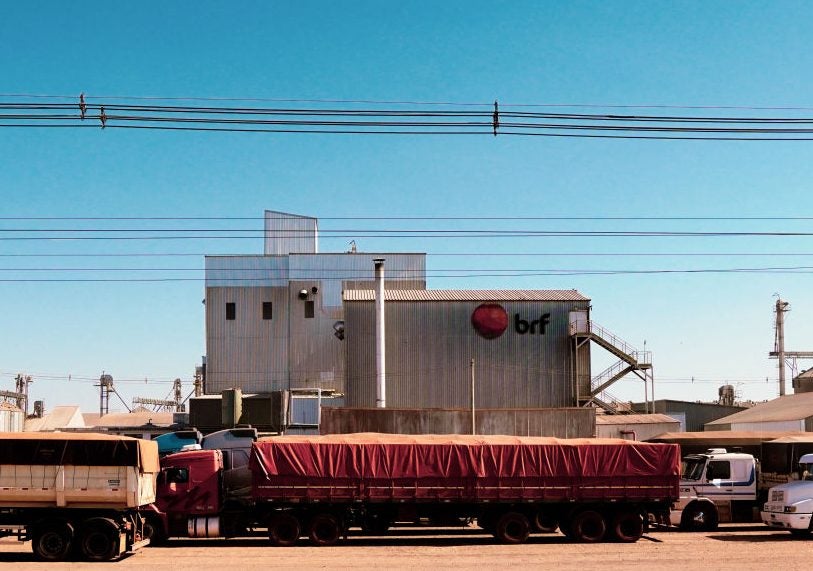
Each week, Just Food’s editors select a deal that illustrates the themes driving change in our sector. The deal may not always be the largest in value or the highest profile, but it will tell us where the leading companies are focusing their efforts, and why.
This new, thematic deal coverage is driven by our underlying disruptor data, which tracks all major deals across our sectors.
The deal
Saudi Arabia’s state agriculture fund has pledged to invest in future share offerings by Brazilian meat giant BRF.
Still only a commitment at this stage, ahead of a “final settlement” slated for 31 December, BRF said the Saudi Agricultural and Livestock Investment Co. (Salic) has issued a pledge to subscribe to 250 million shares.
Meanwhile, Marfrig Global Foods – a fellow Brazilian protein heavyweight and BRF’s largest shareholder – has made a similar commitment to buy 250 million shares. Both the transactions are based on an offer price of as much as nine reais each, delivering a total transaction value of 4.5bn reais ($922.8m).
Why it matters
Shares in BRF jumped on the news – but the deal is perhaps more notable from the perspective of Saudi Arabia.
The news of pledges of investment from Salic and from Marfrig drove BRF’s share price up 16%.
Lining up that kind of backing should help the loss-making company’s balance sheet.
However, the announcement was perhaps more striking for what it might mean for Saudi Arabia, a nation looking to bolster its food security.
Salic was set up in the early 2010s “to achieve a food security strategy by providing food products and stabilising their prices”.
Food security is part of the Saudi’s state overall Vision 2030 strategic plan with Riyadh wanting to reduce the country’s food imports. Investment in food is also seen as one way of diversifying the country’s economy from oil.
Salic owns a chunk of another Brazil-based meat group, Minerva Foods, and has made investments in Australia through a venture they co-own.
Other investments made by Salic include buying shares in India-based rice supplier LT Foods in November.
And BRF is a company well-known to Saudi officials. The company already has a presence in Saudi Arabia, with two factories, one of which opened last year. BRF has a halal food venture with a PIF-backed entity and Saudi Arabia is a major importer of the company’s chicken.
That’s not to say BRF has been without its challenges.
In 2022, BRF booked an annual loss of 3.1bn reais (versus a profit of 437m reais the year before) and a 16% fall in gross profits – despite an 11% rise in net revenues. Its leverage on a net-debt-to-adjusted EBITDA measure was 3.75 times compared to 3.12 times in 2021.
In the first quarter of 2023, revenues were up 9% year on year, gross profit improved and BRF’s net losses narrowed but the 1.02 bn reais loss the company posted was almost double that expected by analysts. Its leverage was 3.35 times versus 2.76 times in the first quarter of 2022. On a call with analysts, BRF’s management said the company would look to sell off unspecified non-core assets.
The agreements struck with Salic and with Marfrig may for now ease investor concerns about BRF’s financial health but the market will still be waiting to see if the company does make any disposals this year. Pet food is one area BRF wants to exit.
The details
BRF said in a statement the Salic undertaking is linked to any “future primary public offering of shares issued by the company for the same amount offered to the public in connection with this offering”.
Conditions are based on the price not being more than nine reais per share and that Salic is offered a minimum of two-thirds of its commitment.
BRF added that “the eventual and future primary public offering of shares issued by the company” would amount to 500 million. Marfrig’s commitment is based on the total allocation of its offer.
More research:
Marfrig Global Foods – Company Profile
